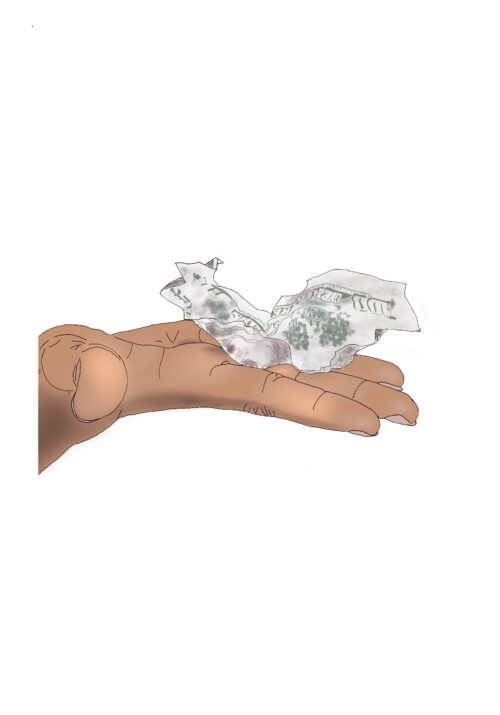Since mid-June, record-shattering monsoons have ravaged Pakistan. As the death toll of the environmental and humanitarian crisis creeps toward 2,000, the Harvard College Pakistani Student Association (HCPSA) has turned to Harvard faculty and students for financial support. While the donations undoubtedly support a noble goal, some Harvard students have voiced concern over the HCPSA’s lack of transparency about Palestinian support from the chosen charities. Others argue the longstanding alliance between Pakistan and Palestine makes for inevitable solidarity with Palestinians.
Over the last three months, HCPSA raised over $33,000 for five carefully chosen organizations: The Citizens Foundation, The Edhi Foundation, Women’s Democratic Front (WDF), Health and Nutrition Development Society (HANDS), and Welfare Association for New Generation.
WDF and HANDS support Palestine. The WDF’s official statement regarding Palestinian solidarity states, “we offer our reaffirmed solidarity to the Palestinian people…We believe that none of us is free until all of us are free.”
In a previous Independent article entitled “Deceptive Donations,” Alex Bernat ’25 argued that HCPSA unethically failed to emphasize these alliances. “Students ought to be made explicitly aware that what they believe to be a donation for flood relief may very well be supporting a political message they find abhorrent,” he wrote.
After HCPSA endorsed and successfully raised funds for the five organizations, Palestinian support from WDF and HANDS was revealed to the student body through Bernat’s article. Although some students felt misled by HCPSA, representatives Hamaad Mehal ’24 and Shraddha Joshi ’24 argue that the historical interconnectedness of peoples’ struggles is not up for debate. They said the alliances between Pakistanis and Palestinians result in evidential support from any grassroots organization.
“Generally, Pakistan is in solidarity with Palestine as a national policy,” shared former HCPSA Co-President and current board advisor Mehal. According to the People’s Daily, a Pakistani newspaper, Pakistan is one of the most outspoken supporters of Palestinians and frequently provides humanitarian aid to the Palestinian Authority.
HCPSA chose to redirect donations towards local charities that use collective action from the grassroots level to effect change at the regional, national, or international level. Joshi confirmed that HCPSA held an in-depth meeting open to all South Asian organizations to select the most qualified organizations for the funds, and the strongest opinions were from international Pakistani undergraduate and graduate students who had been involved with grassroots organizations in their home country.
The connections between organizations and alliances to Palestine were never questioned at the meeting, according to Joshi. “It was never something that the fundraiser wanted to distance itself from because it was something that we strongly stand with as well,” she said. While not a member of HCPSA, Joshi is involved with its fundraising through the Palestine Solidarity Committee (PSC) and as Co-Director of Ghungroo, Harvard’s largest student-run production highlighting South Asian culture.
Mehal believes it would have been difficult to find a charity that did not support Palestine. “Like most people in Pakistan, grassroots organizations are going to be in solidarity with Palestine.”
HCPSA and PSC are united under the central cause of fighting for marginalized people. For those from the non-Western world, “suffering is assumed to be part of their existence,” Mehal said. “Thirty-three million people suffering without any attention is unimaginable. Yet, this is an issue we see with many other causes around the world, including Palestine, which is where we draw that strong connection. Suffering shouldn’t be an inherent part of human existence, regardless of where you live.”
Joshi believes that charitable organizations cannot—and should not—be separated from their country’s politics. “Even if it’s a solely humanitarian cause, it’s never something that needs to be depoliticized,” she said. “Humanitarian causes are coming from some sort of power structure and power dynamics.”
No social issue occurs in a vacuum. Recognizing historical connections and global trends is the first step to understanding human rights crises in their entirety.
In the Science Center Plaza last month, PSC members rallied alongside PSA to help raise money and awareness for the cause. “[PSC] sold Keffiyahs, or the Palestinian visibility scarf, at the same time as soliciting money for the fundraiser. It was never a matter of distancing from any cause, as these two causes are highly connected,” Joshi said. “It just made sense to share our space, resources, and people given that we are fighting for similar causes.”
Amiya Tiwari ’26 (amiyatiwari@college.harvard.edu) leans into her South Asian heritage by giving a voice to Desi students on campus.

